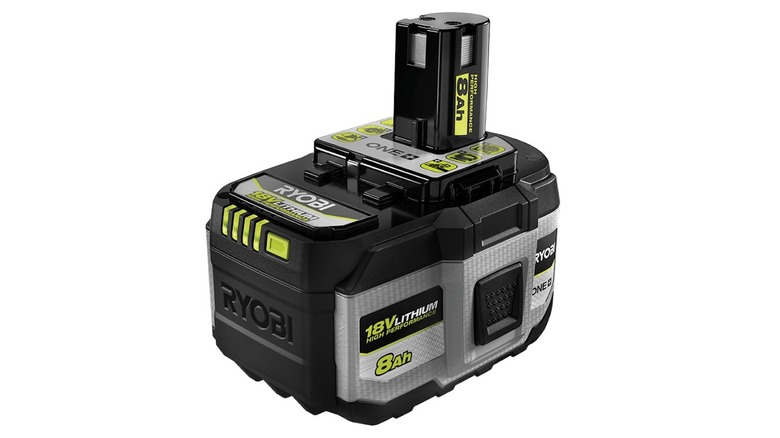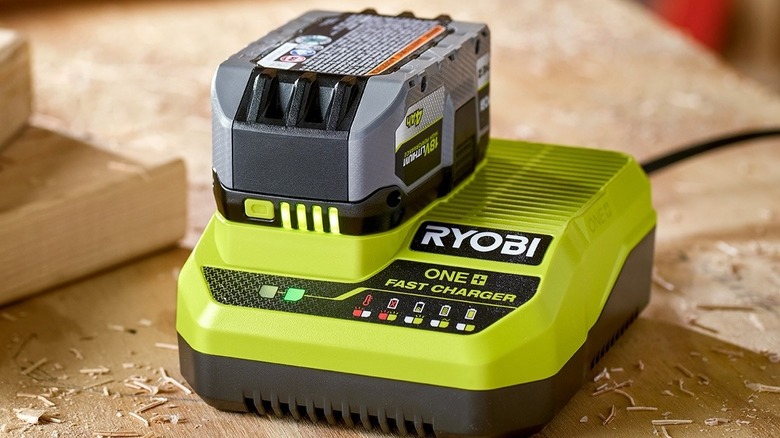Is It OK To Leave A Ryobi Battery On Its Charger? Here's What You Should Know
One of the biggest benefits of cordless power tools is the lack of a cord. But the necessary power has to come from somewhere, which is where rechargeable batteries come in.
Like many other cordless tool brands, Ryobi battery charge times can vary based on the model, the charger, and the combination of both of those factors. Since there's no uniform metric, you're more likely to set a battery down to charge and then inevitably be somewhere else when it reaches 100 percent. But just how bad is it to leave a fully-charged battery unattended on its charger?
Ryobi batteries do have their problems, but accidentally (or even purposely) leaving a lithium battery on its charger is generally no more or less dangerous than leaving any electronic device plugged in. The same can't be said for the manufacturer's Ni-Cad (Nickel-Cadmium) batteries, however, but these have been discontinued in favor of Lithium-Ion varieties. That doesn't mean you should start charging your Lithium-Ion battery and then forget about it, though.
Where to leave your battery
Of course, it is completely fine to leave a Ryobi battery on its charger while it's being charged. Otherwise, how could it ever be reused once it's drained? However, you do still want to take it off the charger once it's done because it can run down the charge faster than if it were removed. You don't need to stress over disconnecting the battery when the second charging is finished, or you're done using a tool, but try not to forget about it, either.
That said, Ni-Cad batteries can be extremely hazardous if used or stored improperly, and that includes leaving them on the charger for too long. So if you suspect your Ryobi battery is Ni-Cad rather than Lithium-Ion (the discontinued battery casings are most likely orange, but consult the manual or official website if you're unsure), do not leave it on the charger after charging for an extended period of time.
You're better off storing your charged Ryobi batteries away from moisture, in a spot that won't get any warmer than 100 degrees Fahrenheit (about 38 degrees Celsius). Avoid leaving them in direct sunlight or leaving them in the rain (on their own, on a charger, or in a tool), too. And when you're ready to put your batteries away, make sure they have at least a 50 percent charge first — an empty battery left alone for too long may start to lose overall maximum capacity.

